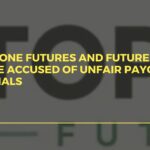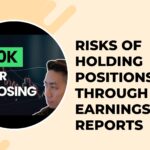A recent incident involving a trader’s denied payout has reignited debate over prop firm policies and their rigid enforcement. Peter Chan, a futures trader operating with Top one Futures, found himself penalized for a surprising reason: his trades were executed too quickly.
Chan, who traded three $100K accounts, hit his $6,000 profit target within 12 trading days. He submitted his payout request expecting a routine transaction. Instead, he received an email informing him that $7,170 had been deducted from his account—more than his total profits—because several of his trades closed in under 10 seconds.
Top one Futures cited their “10-second rule,” a policy intended to prevent high-frequency trading (HFT) and the use of automated bots. Despite the intent behind the rule, Chan maintains he executed his trades manually using one to two contracts per setup and without any automation. According to him, his strategy was simply fast and efficient—traits usually valued in professional trading.
“I followed every risk rule, sized conservatively, and traded with discretion,” Chan explained in a follow-up report. “But I was penalized for being good at my execution.”
The same trades were later reviewed by another firm, Prop Shop, which also flagged Chan’s accounts under its version of the 10-second rule. However, Prop Shop chose to engage with Chan, reviewed his trade logs, and ultimately approved his payout after determining his strategy did not constitute HFT.
“Based on what you have shared, your quick scalping strategy is the reason for the short duration trades, not any form of HFT,” the firm stated in its response.
Same Rule, Different Application
The conflicting outcomes between the two firms have sparked wider discussion in the prop trading community. While both firms enforce the same 10-second policy, their interpretation and handling of the rule differ dramatically.
Top one applied the rule mechanically, refusing to consider context. Prop Shop, by contrast, opted for a discretionary approach—reviewing trader intent before taking action.
The situation raises questions about fairness and transparency in prop firm governance. Are firms protecting themselves, or are they unfairly penalizing successful traders to reduce payouts?
The Bigger Picture
Peter Chan’s case is not an isolated one. Many traders have reported similar experiences—particularly those who trade with speed or precision that skirts the boundaries of prop firm automation rules.
Isaac Rivera, a long-time trader with Topstep, recently made headlines after leaving the firm and publicly criticizing its leadership. Rivera claimed Topstep had shifted from a supportive environment to one focused solely on data manipulation and revenue optimization.
“The mission changed,” Rivera said in a public video. “The firm stopped caring about traders and started caring about metrics.”
A Divided Industry
The Chan case has become symbolic of a broader divide within the prop firm world—between firms that strictly follow rulebooks and those that allow human review and interpretation. For traders, that difference can be the deciding factor between being paid for success and punished for it.
As more traders speak out and transparency becomes a greater demand, firms may be forced to reconsider how their policies are enforced. For now, traders like Chan are left navigating an uncertain landscape where following the rules isn’t always enough—and trading too well might just get them flagged.




